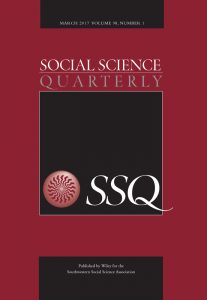facebook, youtube, twitter: mass exhibitionism online
Mark Zuckerberg (Facebook founder and CEO) said recently at the 2008 Web 2.0 Summit:
“I would expect that next year, people will share twice as much information as they share this year, and [the] next year, they will be sharing twice as much as they did the year before.”
The Web 2.0 summit discusses the user-generated web, and of sociological interest here is that when people are given tools to share information about themselves online, they do, often in intimate detail. The massive popularity of social networking sites like MySpace and Facebook highlight this trend, where millions of users display themselves in what might seem like unnecessary detail. Sites like Flickr and YouTube are updated endlessly with photos and videos illuminating users’ everyday lives. Blogging often takes the form of an online diary or journal, but one that is broadcasted to an almost infinite audience. The increasingly popular micro-blogging tool Twitter allows users to publish constant updates of everything they are doing in granular detail. The iPhone application Loopt does this as well, and also maps where the users are at all times. This is not to even detail a whole additional set of popular self-exhibitionism tools described by The Quantified Self project.
How do we interpret this mass exhibitionism online? Do we celebrate it as the free performance of creative individuality? What else is at play? We can follow the dollars and acknowledge that ‘we’ are, collectively, unpaid workers in building an endlessly detailed database, a digital gold mine of information (note here that Facebook alone is valued at $15 billion dollars as of 2007, precisely due to the data that users donate to the site). ~nathan
Social Movements and New Media



1475-682X/asset/akdkey.jpg?v=1&s=eef6c6a27a6d15977bc8f9cc0c7bc7fbe54a32de)

Interesting post. I go back and forth on what the true value of Facebook is. I would argue that the value to users is more about providing access to friends then it is based on the content itself. And the value to corporations like Facebook is purportedly the ability to advertise on a personalized level never before attained.
I like your phrase “mass exhibitionism” – one thing that I’ve thought about is how intimate this exhibitionism is. My hunch is that most people are interacting with their close friends and family in ways that they typically would in more intimate settings. What’s different is that they are letting millions of other “look in” on the details of this interaction. While some people certainly filter their own activity to varying levels when posting to Facebook etc., it seems a bit artificial to filter interaction with intimate friends and we naturally slip back into ourselves. Especially when you grow up with these tools from your youth.
It seems that the social networking sites replace the practice of keeping a private journal or diary for many of their users. Time passes and more features are introduced to document the users’ lives, moods, friends, social lives, romantic lives, and so on. The user can use a drop-down menu to select his or her ‘current mood’ from a list of adjectives. Depending on how the users sets his or her page, it can potentially be viewed by anyone on earth with internet access. This being the norm, I wonder what the affect could be on how people view privacy- rather than being assumed (people aren’t meant to read other people’s diaries) it becomes a choice. I imagine that high school would have been quite unpleasant if I’d had a myspace page.